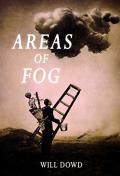BKMT READING GUIDES
Areas of Fog
by Will Dowd
Paperback : 160 pages
1 club reading this now
0 members have read this book
Introduction
Will Dowd takes us on a whimsical journey through one year of New England weather in this engaging collection of essays. As unpredictable as its subject, Areas of Fog combines wit and poetry with humor and erudition. A fun, breezy, and discursive read, it is an intellectual game that exposes the artificiality of genres.
Will Dowd is a writer and artist based outside Boston. He earned an MFA in Creative Writing from New York University, as a Jacob K. Javits Fellowship; an MS from MIT, as a John Lyons Fellow; and a BA from Boston College, as a Presidential Scholar.
Excerpt
OVERTUREAll the weathermen of New England go mad eventually.
After a few decades spent attempting to predict the unpredictable, they succumb to a kind of meteorological nihilism and wander out of the studio mid-broadcast, muttering to themselves, and can be seen a week later selling wilted roses on the side of the highway. ...
Discussion Questions
1. “London Town” is the opening essay. In this piece, Will Dowd discusses the literary merits of fog. What other stories can you think of which prominently feature fog?2. In “Latitudes,” Dowd asks “Why do I live here?” Was there ever a time when you felt the same way about where you live? Has weather ever ruined an event for you?
3. “Bare Bones” discusses the painter Andrew Wyeth and the number of forgeries that arose after his death. What do you think Will Dowd meant when he said the forgery of “Snow Birds” was not painted by someone “whose hands were cold”?
4. In “Beach Walk,” do you agree with Dowd’s statement, “To sit on a seawall and stare morosely into the ocean is one of life’s great pleasures”? Can you remember the last time you sat near the ocean? Is it just the ocean that allows you to cast a line of thoughts? Would a lake or river suffice as well?
5. In “Rara Avis,” Dowd recounts a late-night encounter with a black kitten and jokes that he sometimes suspects sparrows are talking about him. When was your last encounter with an animal in nature?
6. Consider the phrase, “Carpe Diem.” Dowd claims we don’t seize the day, the day seizes us. Do you agree or disagree?
Choose a selection that resonated with you. Discuss why it had such an impact on you.
7. Discuss examples of how Dowd uses personification when describing the weather.
8. The titles of the essays all relate in some way to a famous historical person or literary work. These references are often subtle and may take a bit of digging to uncover the treasure. Consider some of the titles and discuss their correlation to the content of the essays.
9. Dowd mentions various people from history who harbored deep secrets. Choose one of these famous people and discuss how the secret helped or hindered his or her success.
10. Dowd uses comedy to balance the sometimes serious nature of weather. Choose an essay that combines seriousness with humor. What makes the opposing elements work in your chosen essay?
11. Discuss the essays that touch upon human frailty. How does Dowd convey his message?
The titles of the essays all relate to a person or literary work in some way. These references are often subtle and may take a bit of digging to uncover the treasure. Choose four titles (one from each season) and discuss the correlation of the title to the content of the essay.
12. The essay “An Inner Scheme” includes an actual inner scheme, a literary code that involves Vladimir Nabokov. Were you able to figure out Dowd’s secret message? (If you’re stuck, consider what Nabokov told his editor.)
13. In “The Silent W,” Dowd discusses nomen est omen, the concept that our name is our destiny. Do you agree with this idea?
14. In “The Painter of Sunflowers” and “High and Dry,” how is the sun depicted differently?
15. Do you agree with Dowd that The Great Gatsby and other classic works of literature change as you age?
16. Discuss three examples of imagery that stuck with you.
17. In the “Outro,” Will Dowd includes a haiku from the poet Issa. Do you think the poem was an appropriate way to end the book? Would you agree the fog of his writer’s block has lifted?
18. The cover image for Areas of Fog is titled “Cloud Cleaner.” How does this resonate with the lyrical nature of the essays?
Suggested by Members
Book Club Recommendations
Recommended to book clubs by 1 of 1 members.
Book Club HQ to over 88,000+ book clubs and ready to welcome yours.
Get free weekly updates on top club picks, book giveaways, author events and more








